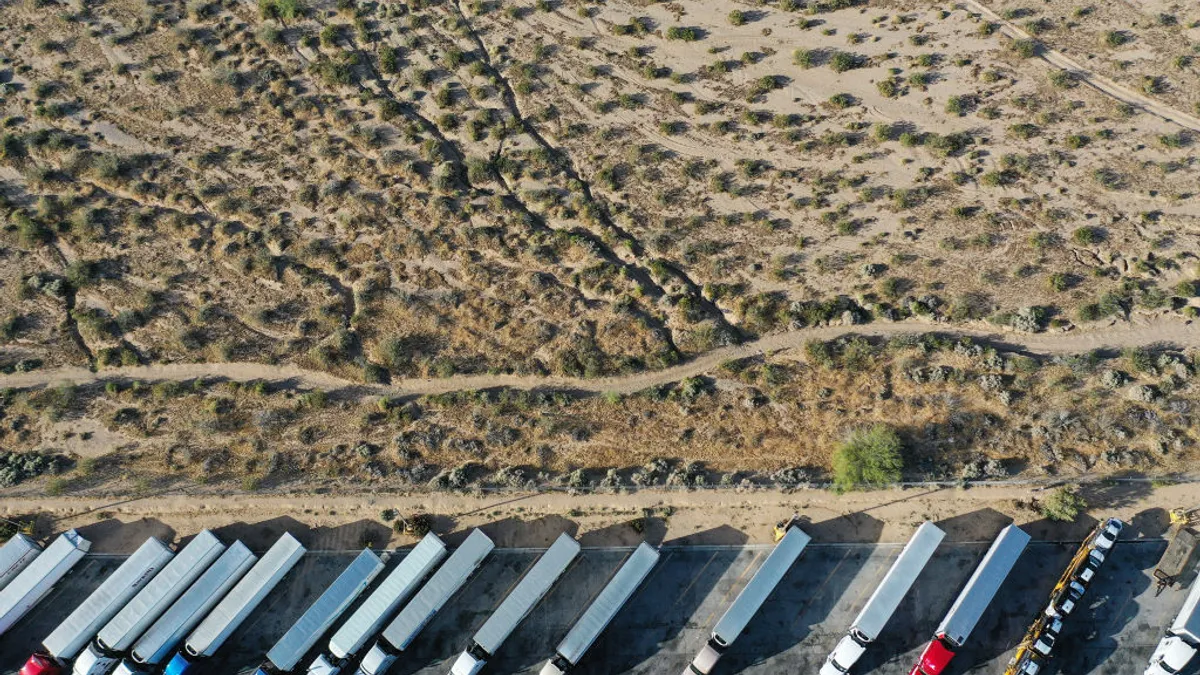Dive Brief:
- Heads of some publicly traded companies, including U.S. Xpress and Werner, suggested that smaller carriers could falter given market challenges. CEOs noted issues such as lower spot rates along with higher fuel costs and interest rates.
- U.S. Xpress Enterprises’ President and CEO Eric Fuller remarked in early November about the “increasing cost structure, especially for small carriers” amid increased delivery-related costs and factors such as higher maintenance and insurance expenses.
- These higher costs, paired with this year’s muted peak season, may accelerate the trend of business exits for more vulnerable players, Werner Enterprises CEO Derek Leathers said on a Nov. 2 earnings call.
Dive Insight:
Between carriers navigating a softer peak season and moving to raise rates, it remains to be seen how firms of all sizes can weather declining demand.
December could be particularly noteworthy in terms of a big uptick in net deactivations, Leathers said, in contrast to the 3,500 to 4,000 trucks a week in aggregate coming out of the market.
Those net deactivations, where more companies turn in their Department of Transportation number versus new registrants coming on board, occurred for 19 of the last 24 weeks, Leathers said.
Net revocations, a term developed by transportation intelligence firm FTR, shows both voluntary and involuntary revocations minus reinstatements of authority, the company’s vice president of trucking, Avery Vise, said in an email.
An estimated nearly 5,300 revocations in November were higher than any month prior to May 2022, “which saw the first wave of failures in the wake of the surge in diesel prices following Russia's invasion of Ukraine,” Vise wrote.

“It's too early to say whether November is the beginning of a cooling in net revocations or just a reversion to the general upward trend that was interrupted by an extraordinary surge between May and October,” Vise also wrote.
But problems at the pump could also signal what’s ahead. Leathers, who also serves as Werner’s president and chairman, predicted in early November that rising fuel delinquencies would grow.
“In conversations I've had across fuel networks in America, they're certainly seeing a rise in delinquencies,” Leathers said. “And when it starts showing up at the fuel pump level, which is something obviously you have to have to run that next load, it's real.”













